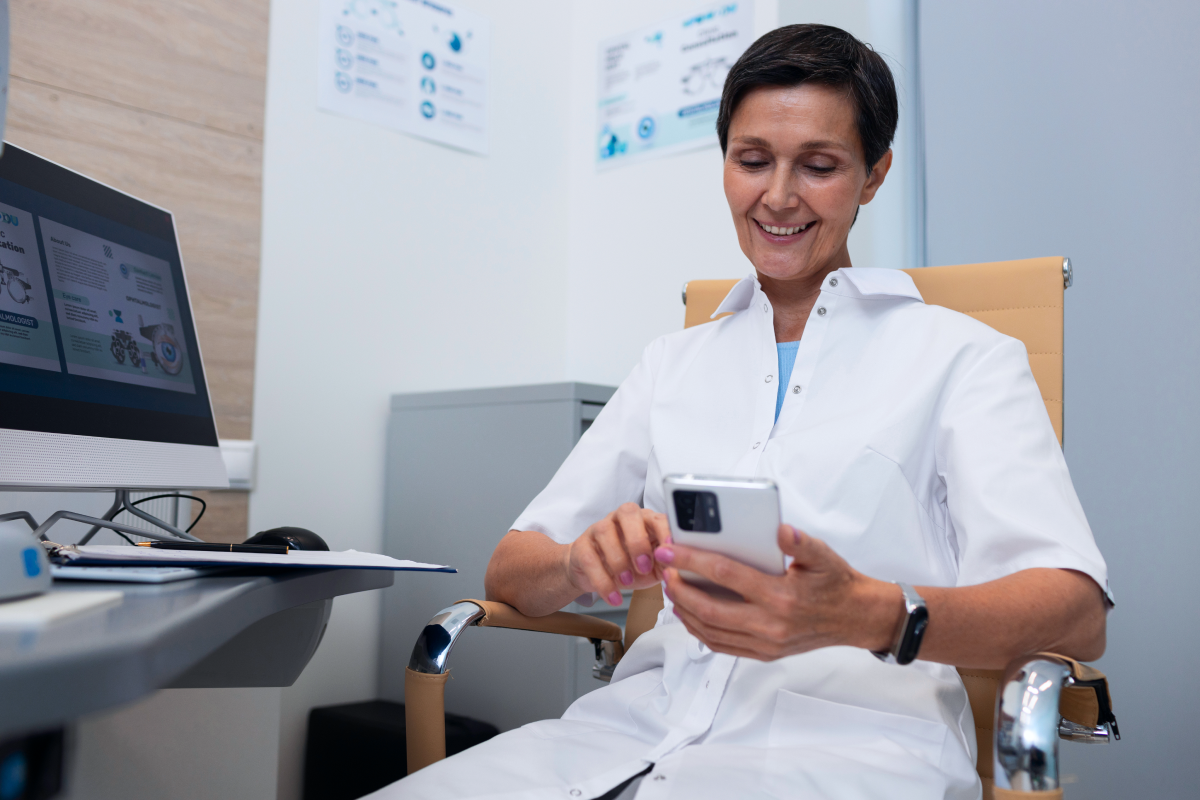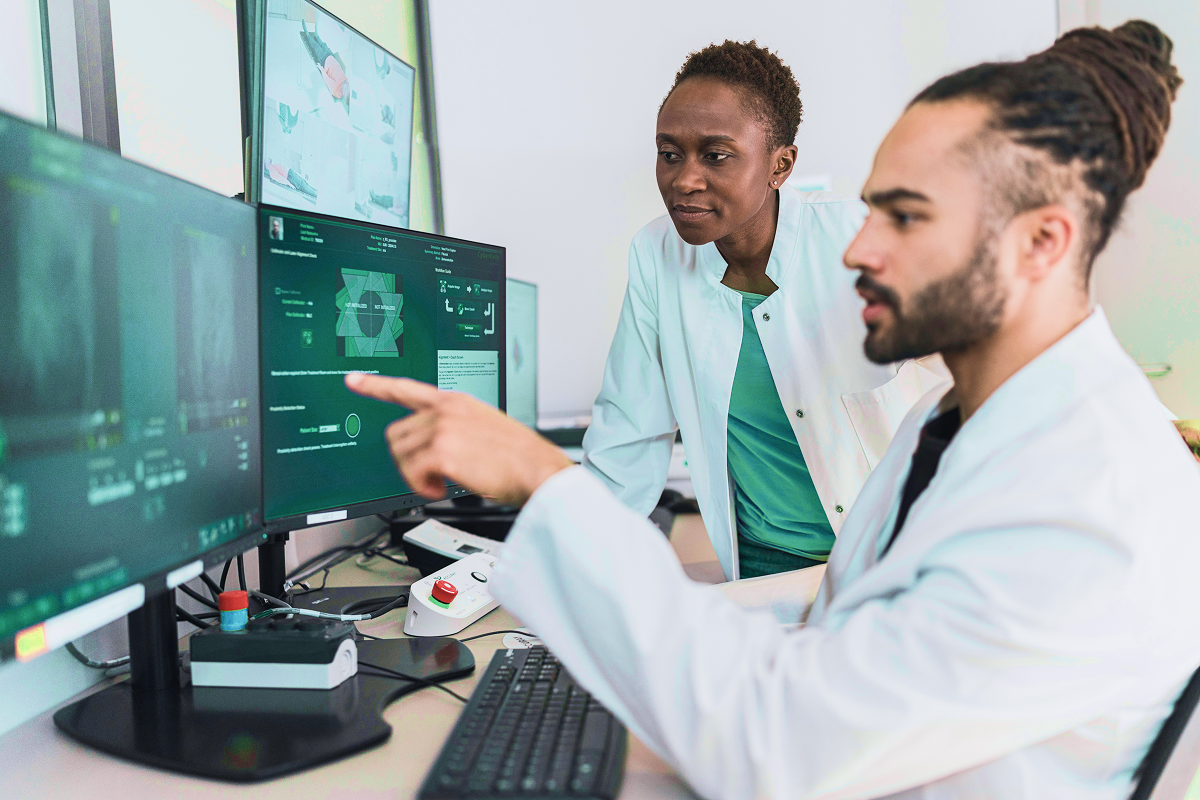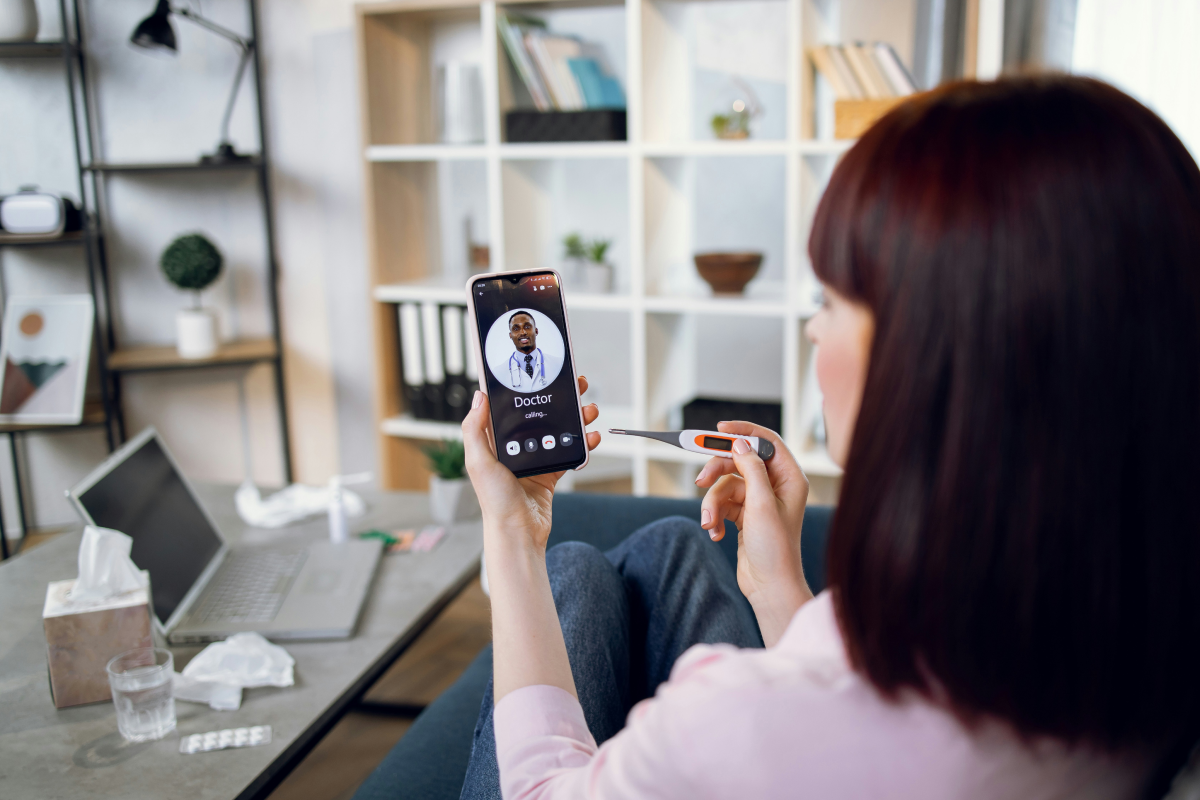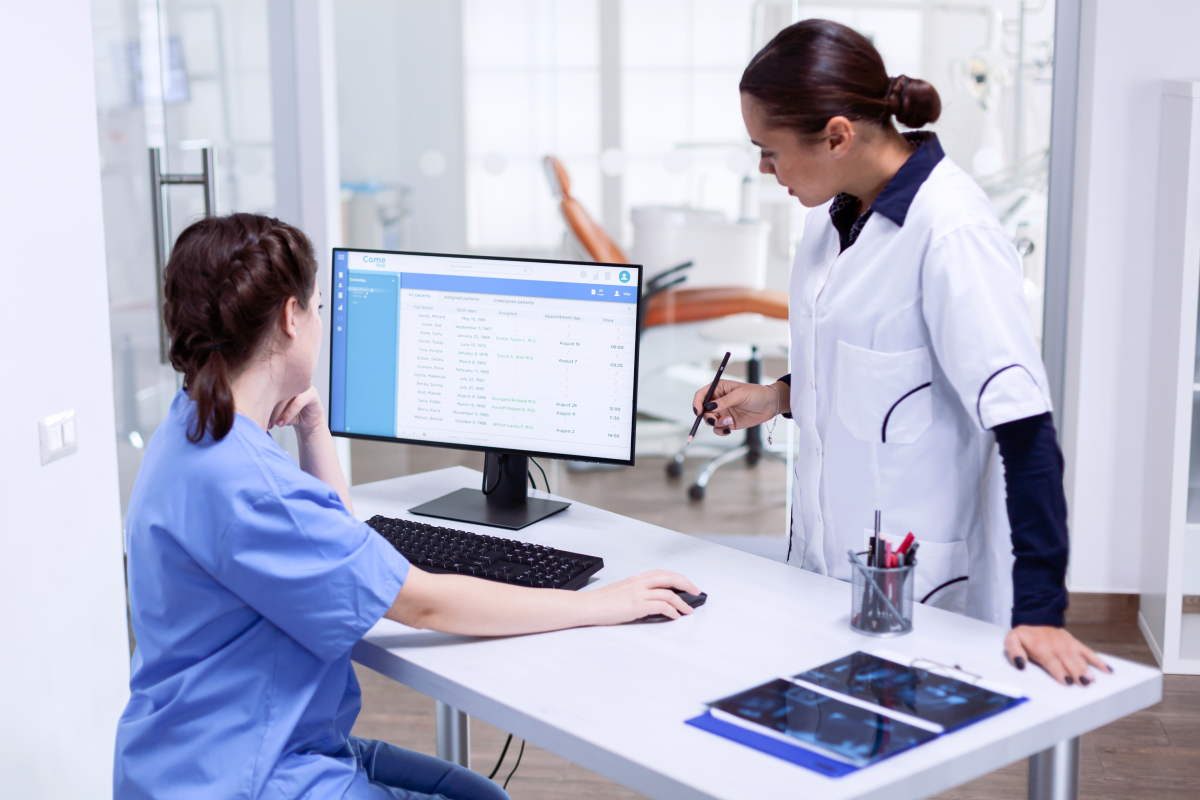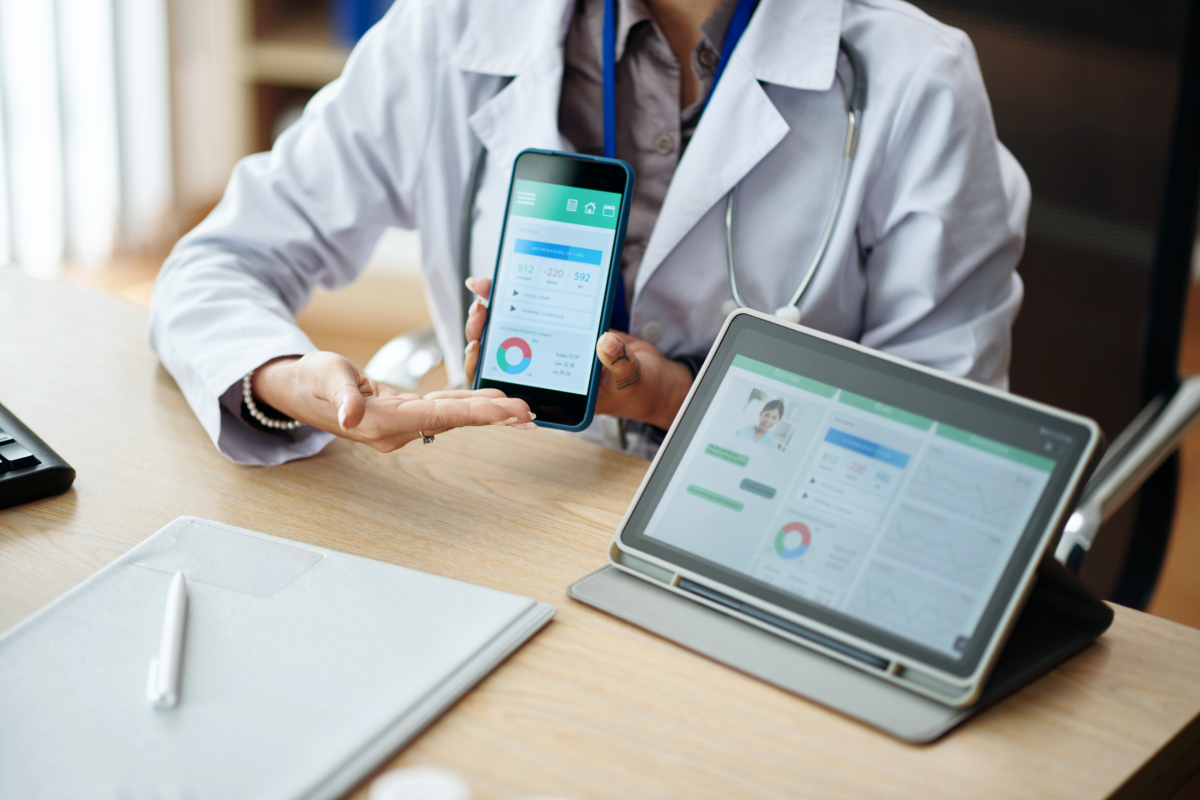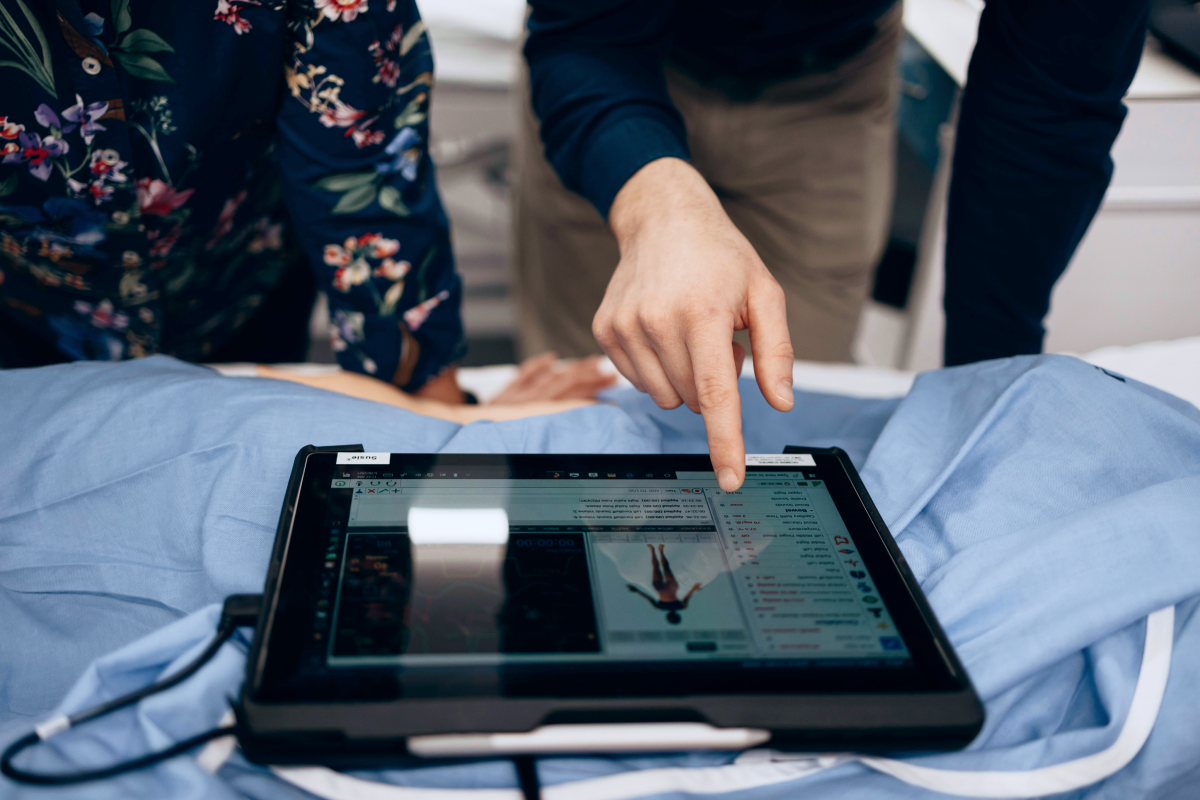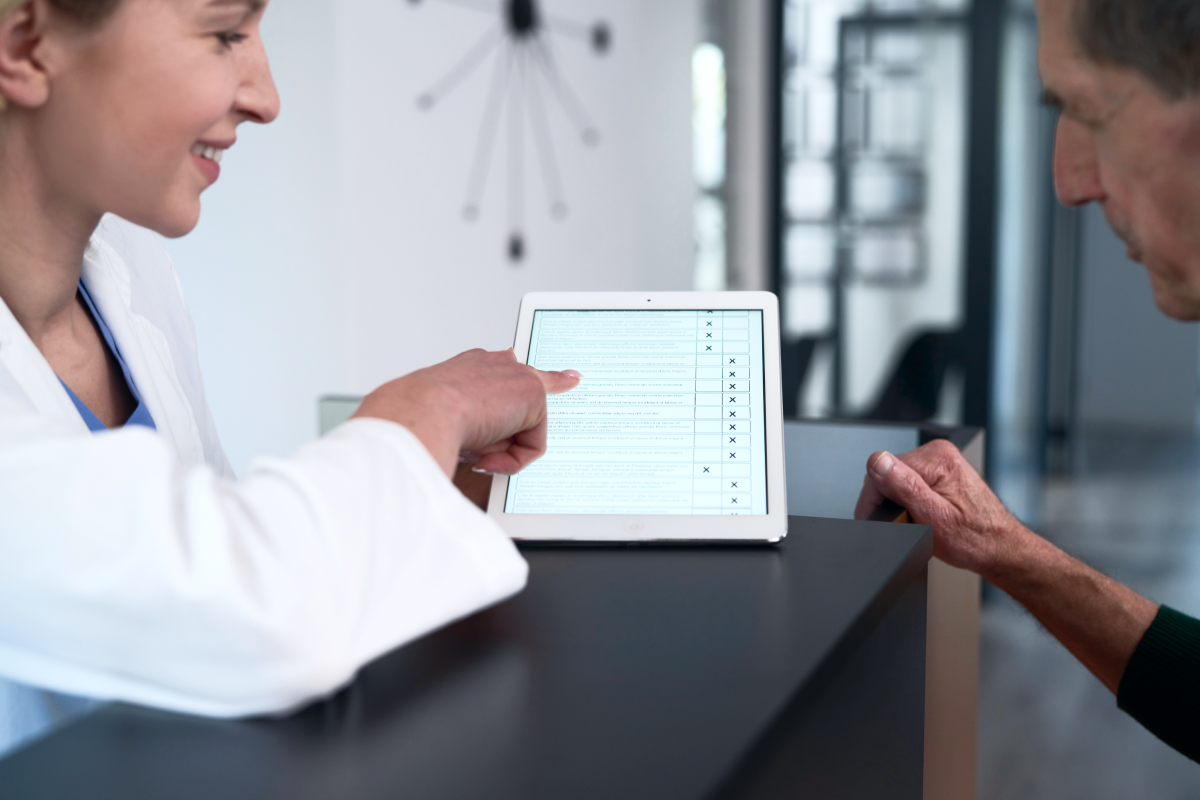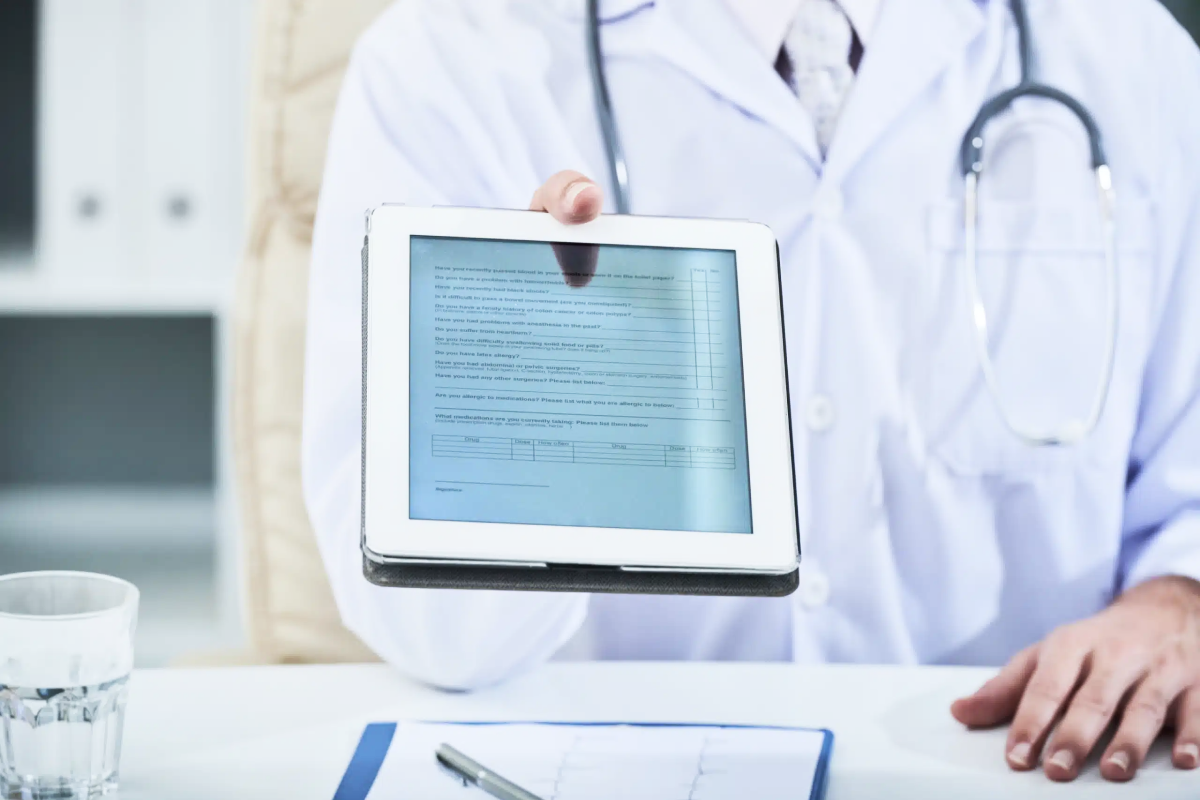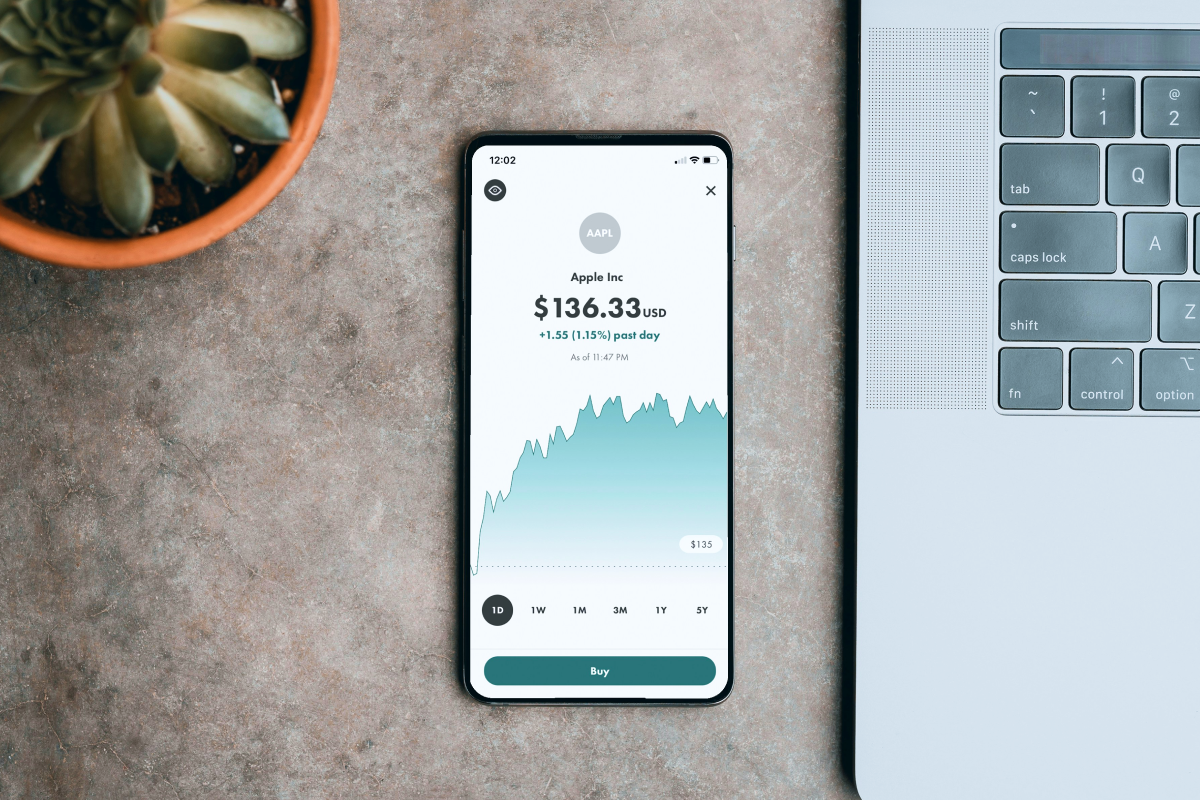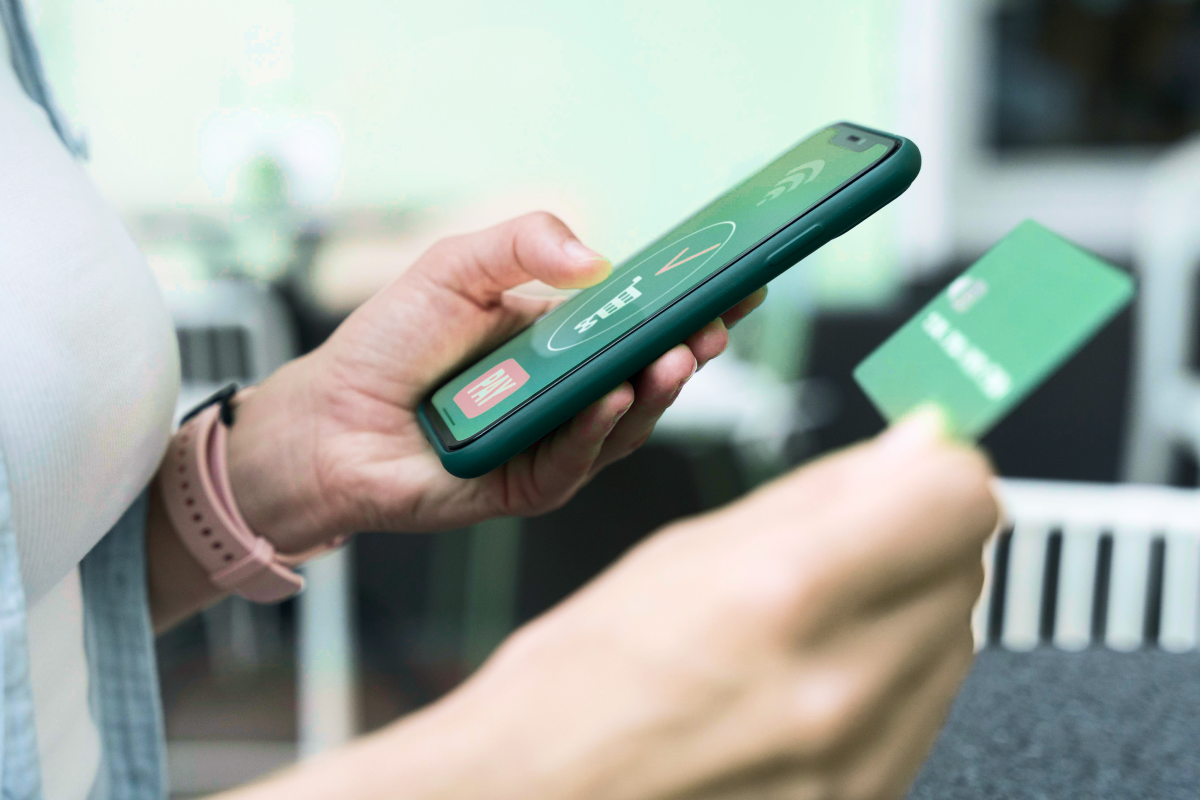The pandemic events have changed how people approach their health. This, in turn, has had a huge impact on the health apps market. As the number of mHealth users is growing, so is the demand for healthcare mobile app development. The market of mobile healthcare applications is predicted to hit $1,070.58 billion by 2032, according to the recent report by Grand View Research. So, if you’re hesitating whether to build a healthcare app, now it's high time.
Creating a medical startup requires a deep analysis of ideas, trends, and development steps. In this article, I've prepared a detailed plan for the healthcare mobile app development process. I’ll explain what a healthcare app is, spell all the nuances out, and give some tips on creating an MVP for digital health apps.
So, make yourself comfortable and enjoy the read!
What is a Healthcare App?
The mHealth niche is very broad and includes a variety of apps, from professional systems to more basic ones. The purpose of mobile healthcare applications also differs.
Mobile health apps simplify our lives: they track our health data, ensure remote assistance, give 24/7 access to doctors, share tips on improving our health, and more. Overall, the purpose depends on the app category you choose.
It's important to mind the categories when looking for healthcare app developers, as you need to provide them with input data. Let's take a look at existing categories.
Professional healthcare apps
The name speaks for itself. Professional healthcare apps involve doctors. All apps used as mediators in communication and treatment processes between the patient and the doctor are called professional. DrChrono and Locus Clinician are great examples of professional mHealth apps. Here's the list of other professional healthcare app types:
Doctor appointment apps
Doctor appointment apps allow patients to find the right doctor at a mutually comfortable time and set the appointment with one click.

These apps often include features like doctor profiles with reviews, integration with electronic health records (EHR), reminders and notifications, online payments, and telemedicine options for virtual consultations.
For clinics and hospitals, such apps reduce administrative workload, minimize no-shows through automated reminders, and improve overall patient satisfaction. All of this is thanks to healthcare access being faster and more convenient.
Electronic health records
An electronic health records (EHR) system is a digital platform that helps physicians, nurses, and medical staff securely store, manage, and share patient data. It contains medical history, treatment records, prescriptions, lab results, and other critical healthcare information.
EHR solutions optimize data exchange across departments. On top of that, they improve the patient experience, help physicians provide timely and accurate treatment, and support administrative processes such as billing, reporting, and insurance claims.
Medical reference apps
Medical reference apps give doctors, nurses, and students quick access to trusted medical information. They usually include drug databases, clinical guidelines, disease descriptions, and treatment protocols. With these tools, healthcare professionals can make informed decisions faster and provide safer, more accurate care.
Some of the most well-known apps are Epocrates, which provides drug information and interaction checks, and Medscape, which offers clinical guidelines and disease overviews.
Database apps
Database apps give healthcare specialists access to vast collections of medical knowledge. Instead of flipping through journals or paper archives, doctors and researchers can quickly search digital libraries to find the information they need.
Examples include:
- PubMed – a go-to source for biomedical studies.
- Cochrane Library, which is known for evidence-based reviews that guide treatment choices.
These resources make it easier to stay current and rely on verified data in everyday practice.
Health tracking apps
Health tracking apps focus on overall well-being. They allow users to keep an eye on sleep, heart rate, daily activity, nutrition, and other vital indicators. This makes them broader than fitness apps, which we’ll describe below.
Popular examples include Fitbit, known for activity and sleep tracking, and Apple Health, which brings together data from multiple sources.
The main idea of these apps is to give people a clearer picture of their health condition.
Networking apps (for doctors)
Networking apps for doctors create a space where medical professionals can connect, share knowledge, and collaborate. They often include discussion forums, case-sharing features, and peer-to-peer messaging.
Some of the most recognized examples are Figure 1, which allows clinicians to exchange anonymized case images, and Doximity, a professional network for physicians similar to LinkedIn.
Telemedicine apps
Telemedicine apps let patients connect with doctors remotely through video calls, chat, or phone. They make it possible to get medical advice, prescriptions, and follow-up care without visiting a clinic.
You may know such telemedicine apps as Teladoc Health, which provides 24/7 virtual care, and Amwell, known for connecting patients with licensed physicians across different specialties.
By the way, we have a post dedicated to the differences between telemedicine and telehealth solutions.
Healthcare apps for patients
This category of mHealth apps usually doesn't require doctors' involvement, but they provide a lot of useful information for patients.
Let’s take BetterMe, NTC, and Lifesum, for example. Healthcare apps for patients may include different features, and the list of types varies.
Medical education apps
Medical education apps for patients provide clear and accessible information about health conditions, treatments, and preventive care. They help people understand complex medical topics in simple language and support them in making informed decisions about their well-being.
Reminder apps
The goal of this type of healthcare mobile apps is straightforward — they remind people to take drugs on time.

If you're not going to build a full-fledged reminder app, it can be an excellent feature that you can include in the doctor appointment app or any other healthcare app.
Dieting apps
Dieting apps help users plan meals, count calories, and track nutrition to achieve specific health or weight goals. They often include food databases, barcode scanners, and personalized diet plans.
The most popular example would probably be MyFitnessPal, as this app has extensive food logging and calorie tracking features. Another well-known example is Lose It!, which offers goal-setting tools and progress tracking.
Diagnosis apps for preventive purposes
Diagnosis apps for preventive purposes help users spot early signs of health issues. They may analyze symptoms related to conditions like diabetes, heart disease, hypertension, or respiratory problems. Some also track skin changes, sleep patterns, or mental health signals.
Since this healthcare mobile software draws attention to potential risks, it encourages users to seek medical advice early and adopt healthier habits.
Fitness apps
Fitness apps support users in exercise, physical training, nutrition, diet, and other activities that promote healthy habits.


In 2024, there were 345 million users who downloaded different fitness apps. Such software can help monitor the number of steps a user takes, burn calories, track heart rate, consume calories, propose exercises, etc. However, it’s recommended to combine these apps with wearable devices like fitness wristbands and other training equipment.
Here are just a few of many examples of healthcare mobile app designs that you may take for reference before medical app development.
Benefits of Healthcare App for Doctors and Patients
One of the reasons why medical app development became so popular is that it fulfils the main needs of patients and doctors. There are a few significant advantages of the healthcare app I'd like to list here.

Benefits for doctors
Remote assistance
Mobile healthcare apps allow doctors to monitor patients' health even if they are far away. In addition, doctors can save their time visiting patients personally by contacting them through calls, video chats, or app chats.
Effective workload distribution
With the help of mHealth apps, doctors can set up appointments at the most suitable time. They can also manage essential tasks via mobile and web apps.
Brand awareness
A lack of loyalty and trust hurts just as much as a toothache. Having a healthcare app boosts the brand awareness of a clinic or a doctor. When patients are treated in a clinic that has a digital presence, it contributes to trust and loyalty growth. As a result, they are more likely to choose the same clinic next time.
Benefits for patients
Improved treatment process
The mHealth apps make it possible to arrange video calls to ensure more comfortable communication between patients and doctors. Doctors have all the tools needed to examine patients properly. They build prescription lists and can control the drug regimen in the app.
Cost-efficiency
This one is on the surface, as online appointments cost less than personal appointments, which makes healthcare more affordable for patients. With mHealth apps, people also save on travel expenses and time off work. In addition, built-in reminders reduce missed appointments, which saves extra costs and improves treatment consistency.
Online payment
With the healthcare app, there is no need for cash. Patients can simply schedule an appointment and make a payment in the app. Fast, convenient, and accessible.
Remote assistance
The majority of issues can be solved using healthcare apps, so people don't need to leave their homes. They don't need to waste time getting to the hospital or standing in the queue.
6 Steps to Build a Healthcare App
Healthcare mobile app development is not a straightforward process. There are many nuances and differences from other apps you need to consider. Here's the list of detailed steps to build a healthcare app:
- Do market analysis
- Study your audience
- Choose an mHealth app type you want to build
- Create a healthcare mobile app design
- Make the app HIPAA-compliant and secure
- Build a healthcare app MVP

Step 1. Do market analysis
As clear as it is, your healthcare app will be a waste of time if it is not valuable. Healthcare mobile app development involves market analysis. You need to study your niche, know more about your competitors, what value they bring, what their strong and weak sides are, and how you can stand out.

Step 2. Study your audience
An important thing here is the user research phase. We at Uptech have worked on professional healthcare apps that aimed to help with health issues like bulimia, anorexia, and mental disorders, so we know how crucial it is to correctly identify user needs, behaviors, and expectations
While developing healthcare applications, you should always be ready to face the sensitive problems of people. It’s always a good idea to conduct interviews, focus groups, or surveys. But a challenge, as you need to keep the balance: get to the root of the user's problem and keep the ethical balance.
My recommendation is to ask about the methodology, not personal issues. For example, when I interviewed a person with bulimia, I asked the question “How do you create your eating schedule?” instead of “Did you feel hurt that your mother commented on your weight?”
“My recommendation is to ask about the methodology, not personal issues.“
I'd also like to give some tips on interviewing since I know all the angels.
- Prepare for the interview.
- Explain the context of the interview, its goals, and value.
- Guide the person you take the interview from.
- Don't take the information close to the heart.
- Don't take everything people say for true.
Even the most expensive healthcare app development services won't save your app if it is useless. That is why you must find out all the pain points of your target audience.

Step 3. Choose an mHealth app type
As I mentioned above, the healthcare app type determines several things: the app's database, functionality, and app goal. You cannot just ask medical app developers to build any app; you need to define key points with a team, like:
- What kind of app do you need?
- How will it work?
- What pains will it solve?
Step 4. Create a healthcare mobile app design
Design completes the lion's share of the app's success, and the mHealth app design should be consistent and intuitive. Its goal is to lead the user to the endpoint smoothly. The design must be user-friendly, and the fewer interaction points it has, the better experience users get. Also, I recommend reducing the cognitive load of your app to the maximum.

Step 5. Make it HIPAA-compliant and secure
I can't stress it enough, the healthcare topic is a very sensitive one, and healthcare application development isn't simple. If you're planning to build a healthcare app, it's essential to comply with some regulations.
For example, the USA region will require your app to follow all HIPAA regulations. In Europe, all apps that process personal information must comply with the GDPR.
The idea of HIPAA is to ensure the protection of personal healthcare information for both parties: patients and healthcare providers. How to make sure that your app follows HIPAA requirements? It's a good question to ask, and here's a short checklist that will help you.

Why limit access? Specific user roles have access to users' health data information. Only the treating doctor can see their patient's profile with analysis, progress, diagnosis, etc.
How to ensure data encryption? Developers must use reliable encryption protocols that duly protect all personal health information. The IT team must collect information in a few copies on different servers to be restored in any crashes or errors and respond to any alerts immediately.
How to find HIPAA-compliant services? All healthcare mobile app development services must be HIPAA-compliant. While working on one of the projects, we used Sendbird chat, which is HIPAA compliant. Though we had to customize it to our needs, so it's not an “on-the-fly” process. Unfortunately, there's no list of all HIPAA-compliant services. It's a pity, I know, but here's the checklist you may use while choosing the service.
Note that this is not an exhaustive list of items to make your app compliant. I focused on technical issues mainly, but there are also administrative requirements, like assigning specific roles to people and creating policies. You can check the official guidelines to ensure that you're not breaking the rules. Also, you may collaborate with companies that provide audits on HIPAA to help you become/stay compliant.
Step 6. Build a healthcare app MVP
Now, since you've ensured to use secure services and picked the healthcare app type, the next step should be an MVP development. While building a healthcare app MVP, you need to mind the fundamental MVP creation rules: build it fast and make it viable.
Before healthcare app MVP development, you need to prioritize the vital features, ensure they solve the problem, and iterate constantly. MVP gives you a competitive advantage because you enter the market faster and start gathering feedback from real users sooner than if you build a full-fledged product right away.

Healthcare App MVP: Features Checklist
It is worth mentioning that healthcare mobile app development is more or less similar. The onboarding, user flow, and functionality are often the same, and that’s the good news because you're able to use ready solutions. Another side is that building a healthcare app MVP can be entirely different since healthcare apps have many types and sub-types, and you need to decide the feature set that suits your app precisely.
So I won't list features for each app type, but there are a few features many healthcare apps include.

All features can be categorized into two groups: for doctors and for patients.
Main features of a healthcare app for doctors:
- A doctor’s profile allows doctors to present their specialization, experience, and availability.
- Chats (1:1, group) enable secure communication with patients and collaboration with other doctors.
- A calendar helps doctors manage appointments and keep track of their schedules.
- Notifications keep doctors informed about new messages, upcoming appointments, or changes.
- Alerts provide urgent reminders about critical tasks or important patient updates.
- Patients’ health cards store essential health information for quick access during consultations.
Main features of a healthcare app for patients:
- A patient’s profile contains personal health data, preferences, and medical history.
- Chats (1:1) let patients directly communicate with doctors in a secure way.
- A calendar allows patients to book, view, and manage appointments with healthcare providers.
- Notifications remind patients about upcoming visits, test results, or doctor messages.
- Alerts warn patients about urgent health updates, medication reminders, or schedule changes.
- Surveys gather feedback or health-related inputs to improve the quality of care.
How Uptech Can Help You with mHealth App Development
We at Uptech have extensive expertise in healthcare app development, so we know firsthand how to build your HIPAA-compliant software from the research stage to a ready-to-launch product.
To give you an idea of our experience, here are two cases we’ve worked on:
- MicroGenDX. We redesigned a B2B platform and built a B2C web platform for at-home diagnostics. Our team also developed a custom admin panel and mobile apps for DNA-based lab testing. The system supports test ordering, registration, and result access, while meeting HIPAA compliance and ensuring data security.
- AI-powered prescription automation solution. We developed an AI tool that decodes both handwritten and digital prescriptions with up to 90% accuracy. The system merges multiple prescriptions into one medical plan, detects errors, and streamlines integration with EHR systems.
More cases, including those in the healthcare industry, can be found on our work page.
If you’re looking for a healthcare app development company or need any tips from professionals for your project?
Contact us – we'll be happy to help you.

FAQs:
How much does it cost to develop a healthcare app?
The average price of building a healthcare app for iOS and Android with full backend infrastructure and a design will cost you approximately $150k. Note that the product management, QA, and team communication services are included in the price.
How do you make an effective medical mobile app?
Collaboration and a product mindset are the foundation for making any app effective. Close work of product, design, and development teams makes it possible to create an app that works and fulfills users’ needs. And, of course, product mindset. It helps to make wise business decisions and focus on a customer.
How long does it take to develop a medical app?
The approximate time of building a healthcare app ranges from 5 to 6 months, depending on the details: the features set, design, and specialists engaged in the process.

